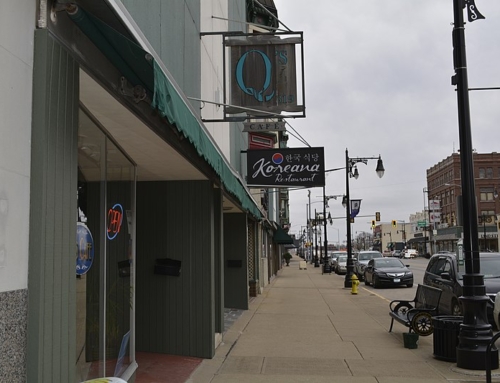“I forgive you.” Three little words that can be very hard to say–right up there with “I was wrong,” “I’m sorry” and “I need some help.” Most people know that forgiveness is a Christian value. But what exactly does the Bible say about forgiveness?
know that forgiveness is a Christian value. But what exactly does the Bible say about forgiveness?
Forgiving Other Believers Is Crucial
The New Testament writers put special emphasis on forgiveness among believers. When other Christians have wronged us, we should respond with love. Colossians 3:13 tells us to bear with one another’s flaws, and that if any of us has a complaint about another Christian, we should forgive like Christ forgave us. This command is in the context of Paul’s advice to believers within a local church. Similarly, Ephesians 4:32 says that believers should be kind and gracious towards each other, forgiving one another as Christ forgave us.
In both passages, the focus is on Christ’s forgiveness. Within a group of believers, we all know what it feels like to need forgiveness from someone else. We also know what it’s like to receive that forgiveness, even though we did nothing to deserve it. When Christians forgive other Christians, we’re all reminded of what Christ did for us.
Forgiveness Doesn’t Mean Not Confronting Sin
New Testament writers wrote many letters to local churches. Although these letters emphasize forgiveness, they also emphasize the importance of confronting sin in the church. One example comes from Galatians 6:1. The Galatian church is told that, if a member is caught committing sin, other members should try to lovingly guide them back to obedience to Christ. 1 Timothy 10 contains some more difficult instructions. Church members who continually sin should be named and exposed before the entire congregation.
 Confrontation isn’t pleasant, whether it’s private or public. It also might not feel very forgiving. But it’s important to remember what forgiveness truly means.
Confrontation isn’t pleasant, whether it’s private or public. It also might not feel very forgiving. But it’s important to remember what forgiveness truly means.
We are empowered to forgive other people for wrongs they’ve committed against us personally. If they owe us money and never paid us back, we can tell them to simply keep it. If they’ve hurt our feelings, we can continue our relationship with them without bringing up the hurt feelings again and again. If they broke something that belonged to us, we can decide not to mention it again going forward. However, when a person has sinned against God, we don’t have the authority to forgive. Rather, we have a responsibility to help that person seek God’s forgiveness and be restored to a right relationship with God.
We Should Forgive Unbelievers and Personal Enemies, Too
In Romans 12:17-21, Paul explains that Christians must be ready to forgive everyone, not just other Christians. We should never return evil for evil. As far as we can, we should live in peace with everyone. Furthermore, it’s never ok to seek revenge when people wrong us, even if those people are really evil. Instead, we should repay unkindness with kindness.
This advice sounds simple enough on paper, but it’s difficult to put into practice in the real world. Maybe you have a neighbor who constantly throws brush over the property line onto your lawn. If you’ve discussed the issue with your neighbor, and they’ve responded with contempt, you might be tempted to throw your own brush onto their lawn. But Paul’s command is to repay evil with good. This might look like knocking on your neighbor’s door and offering to properly dispose of their waste yourself. You might mail them a gift card for coffee and an invitation to sit down, discuss the issue, and schedule brush pickup together. Actions like this go against our human nature, but the Christian life is about struggling against the desires that come naturally to us.
door and offering to properly dispose of their waste yourself. You might mail them a gift card for coffee and an invitation to sit down, discuss the issue, and schedule brush pickup together. Actions like this go against our human nature, but the Christian life is about struggling against the desires that come naturally to us.
Forgiveness Is Also For Powerful Systems And Leaders
We’re commanded to forgive in our personal interactions: people who carelessly run shopping carts into our parked cars, cashiers who are needlessly rude, and coworkers who spread vicious rumors about us in the office. But what about political systems, powerful groups, and influential leaders? How should we respond when those in power have wronged us?
Jesus set a powerful example during His own public execution. Several powerful forces were responsible for his death: a corrupt legal system, members of the Roman military, and two different cultural and ethnic groups (the Jews and the Romans). All of these forces worked together to carry out his brutal and unjust crucifixion.
However, as Jesus died, he prayed to God the Father to forgive those who crucified him, because they didn’t understand what they were doing. Many powerful social structures and political forces were included in the request: “Father, forgive them.”
 How Do I Forgive Structures And Groups?
How Do I Forgive Structures And Groups?
Jesus gave us an excellent starting point: prayer. Praying for those who make up a powerful system is always appropriate. Sarcastic, insincere prayers for those in power are not Christlike. Jesus sincerely prayed for the spiritual well-being of people in authority, even while he died, and we should too.
Titus 3: 1-2 tells us to obey those in political power, and to say yes when they ask us to do honest work. Our speech shouldn’t be characterized by slander, hate, or argument with those in authority. Rather, we should be kind and polite, no matter who we’re talking to or about.
This is also easier said than done. Since the New Testament was written, many powerful government systems have risen and fallen, and most of them have been problematic. The ancient Romans were known for their cruelty, often forcing prisoners of war into slavery. For several hundred years, monarchs in Europe would cruelly torture and execute their subjects for belonging to various religious groups. Even in America, government can sometimes be oppressive and unfair. However, Christ’s example of forgiveness is still ours to follow. Like Him, we should be concerned about the souls of powerful people, not with righting their wrongs against us.
At Harmony Baptist Church in Galesburg, IL, we know that forgiveness is hard to live out in our daily lives. We’d love to have you join us as we encourage each other and grow more like Jesus together. On our Contact page, you’ll find information you need to plan a visit!





